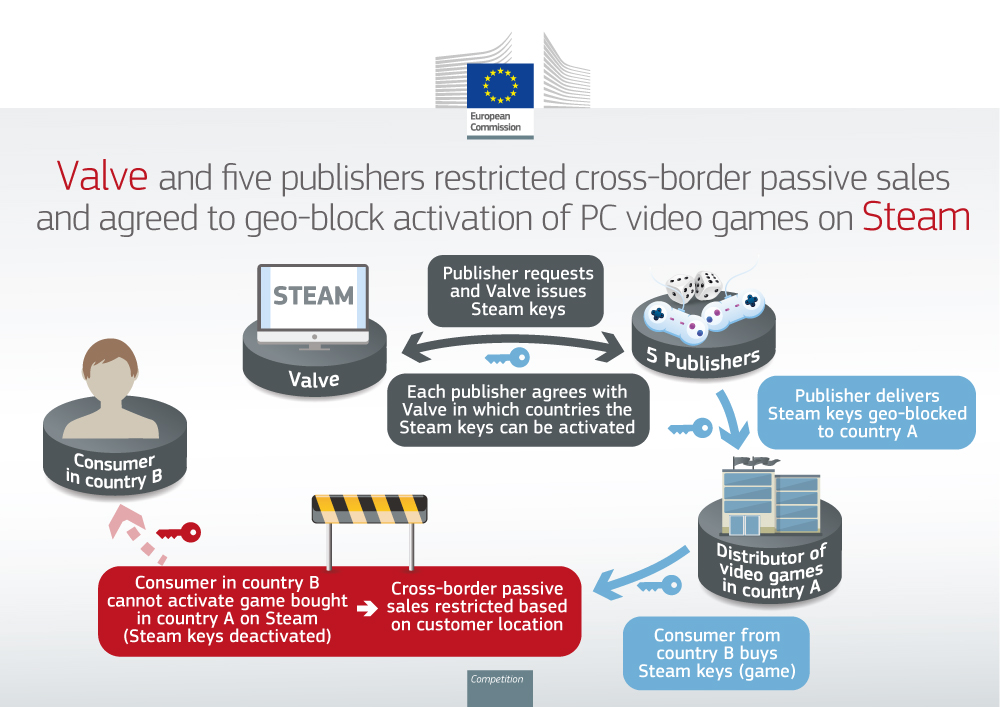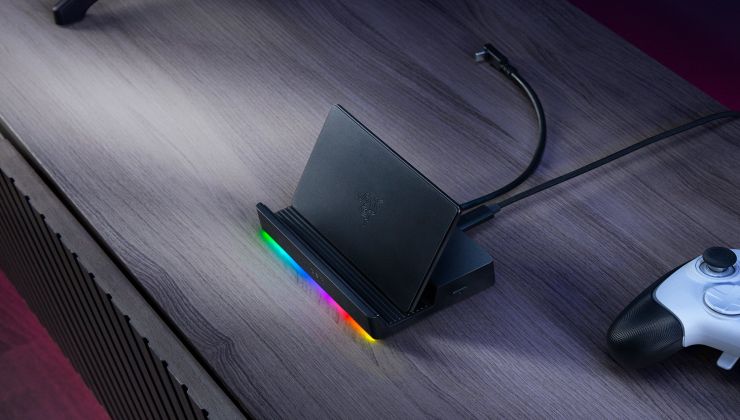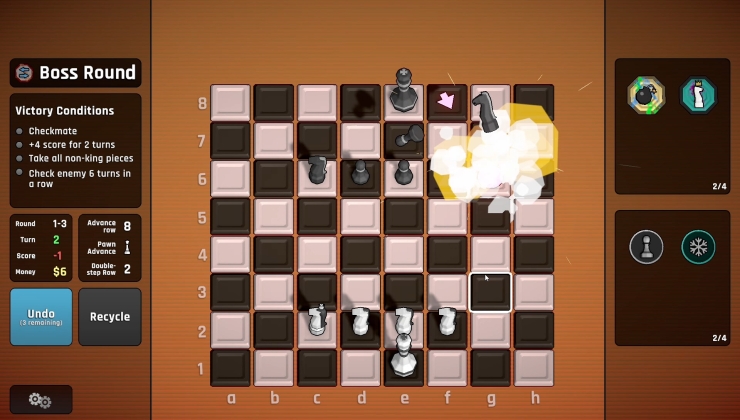The European Commission just announced that they've now issued formal fines against Valve, Bandai Namco, Capcom, Focus Home, Koch Media and ZeniMax for breaching their antitrust rules. An investigation that has been going on for some time now since early 2017, and certainly not the first fine Valve has dealt with for breaking some rules here. Note: statement from Valve at the bottom.
What's the deal? The EU say that Valve and the others restricted cross-border sales on the basis of their location inside the European Economic Area (‘EEA'). To put it simply: Valve allowed certain developers and publishers to block keys being redeemed in one country, that were purchased in another (where it might have been cheaper). Out of all those named, Valve is the only company that did not cooperate with their investigation and so they got slapped a lot harder.
The EU Commission made this handy chart for the issue:
Executive Vice-President Margrethe Vestager, in charge of competition policy, said: "More than 50% of all Europeans play video games. The videogame industry in Europe is thriving and it is now worth over € 17 billion. Today's sanctions against the "geo-blocking" practices of Valve and five PC video game publishers serve as a reminder that under EU competition law, companies are prohibited from contractually restricting cross-border sales. Such practices deprive European consumers of the benefits of the EU Digital Single Market and of the opportunity to shop around for the most suitable offer in the EU".
The fines:
|
Company |
Reduction for cooperation |
Fine (€) |
|
Bandai Namco |
10 % |
340 000 EUR |
|
Capcom |
15 % |
396 000 EUR |
|
Focus Home |
10 % |
2 888 000 EUR |
|
Koch Media |
10 % |
977 000 EUR |
|
ZeniMax |
10 % |
1 664 000 EUR |
| Valve | 0% | 1 624 000 EUR |
For a company as big as Valve (and the likes of ZeniMax), they won't be losing any sleep over fines that for them will most likely be a drop in the ocean. Valve especially, as the Steam store pretty much prints money for them.
You can see the full announcement here.
Update: We reached out to Valve and they said this:
During the seven year investigation, Valve cooperated extensively with the European Commission (“EC”), providing evidence and information as requested. However, Valve declined to admit that it broke the law, as the EC demanded. Valve disagrees with the EC findings and the fine levied against Valve.
The EC’s charges do not relate to the sale of PC games on Steam – Valve’s PC gaming service. Instead the EC alleges that Valve enabled geo-blocking by providing Steam activation keys and – upon the publishers’ request – locking those keys to particular territories (“region locks”) within the EEA.
Such keys allow a customer to activate and play a game on Steam when the user has purchased it from a third-party reseller. Valve provides Steam activation keys free of charge and does not receive any share of the purchase price when a game is sold by third-party resellers (such as a retailer or other online store).
The region locks only applied to a small number of game titles. Approximately just 3% of all games using Steam (and none of Valve’s own games) at the time were subject to the contested region locks in the EEA. Valve believes that the EC’s extension of liability to a platform provider in these circumstances is not supported by applicable law. Nonetheless, because of the EC’s concerns, Valve actually turned off region locks within the EEA starting in 2015, unless those region locks were necessary for local legal requirements (such as German content laws) or geographic limits on where the Steam partner is licensed to distribute a game. The elimination of region locks may also cause publishers to raise prices in less affluent regions to avoid price arbitrage. There are no costs involved in sending activation keys from one country to another, and the activation key is all a user needs to activate and play a PC game.
Sooooo... Did they also promise to stop geo-blocking or are we just talking fines here ? Can't see anything in the linked article about that.
If they do stop its likely only to stop within the EEA so keys bought in any european EEA country will be redeemable in any other EEA country. However thanks to Brexit the UK is no longer in the EEA so we will still be screwed!
I'm wondering which are those price differences within the EU? Checking SteamDB the countries using Euros aren't listed separately. So I guess at least via the Steam store those prices are all the same. Then it will be keys that you can buy through retail boxes, and I guess there the store which sells them defines the price. Having those region locked seems strange to me.I guess it is referring to the practice of distributing some Game Keys and blocking them if issued in a different country, which sounds like a scheme for applying different prices.
Last edited by LordDaveTheKind on 20 Jan 2021 at 4:08 pm UTC
If Valve ditch regional prices, everyone loses as a result. Developers lose sales in many poor countries (it might not be much but any sale is better than zero and serving content is dirt cheap anyway), Valve lose their cut, people go back to piracy (single player games will suffer most as they don't need constant updates/anticheats/etc.) Valve have the most ethical DRM out there and a really good price policy and now EU is ruining it all. I hope nothing will change for the customers as a result of it.
EDIT: it's not 100% clear but looks like they're talking about the countries that belong to the EU only and not the situation when a game is bought outside the EU and activated inside (or vice versa). So maybe it's not that bad.
Last edited by rkfg on 20 Jan 2021 at 4:09 pm UTC
This is very bad and stupid. They basically force Valve to set the same prices everywhere, no matter how strong economic is in certain countries. I
No they don't. They force Valve and other Publishers to redeem keys all over the EU no matter in which EU country they have been bought. If Valve changes the Prices due to this, it's all up to them and not forced by anyone.
Sooooo... Did they also promise to stop geo-blocking or are we just talking fines here ? Can't see anything in the linked article about that.
They already did that years ago...
""The region locks only applied to a small number of game titles," Valve said in a press release. "Approximately just 3 percent of all games using Steam (and none of Valve's own games) at the time were subject to the contested region locks in the EEA. Valve believes that the EC's extension of liability to a platform provider in these circumstances is not supported by applicable law. Nonetheless, because of the EC's concerns, Valve actually turned off region locks within the EEA starting in 2015, unless those region locks were necessary for local legal requirements (such as German content laws) or geographic limits on where the Steam partner is licensed to distribute a game."
https://www.pcgamer.com/valve-called-out-by-the-european-commission-for-geo-blocking-games/
This is very bad and stupid. They basically force Valve to set the same prices everywhere, no matter how strong economic is in certain countries.The fine is related to EU countries, for which each company (regardless of the origin) must apply the same price in each of them if they want to sell.
If you check https://steamdb.info, EU countries always appear in one line, and if you buy in any of the EU countries that single line (as well as all the related promotions) must apply.
This is very bad and stupid. They basically force Valve to set the same prices everywhere, no matter how strong economic is in certain countries. I
No they don't. They force Valve and other Publishers to redeem keys all over the EU no matter in which EU country they have been bought. If Valve changes the Prices due to this, it's all up to them and not forced by anyone.
Even if the prices are set the same across region, I doubt that is Valve doing that, but the publishers putting their games on Steam.
If that's the case then it makes sense.This is very bad and stupid. They basically force Valve to set the same prices everywhere, no matter how strong economic is in certain countries.The fine is related to EU countries, for which each company (regardless of the origin) must apply the same price in each of them if they want to sell.
If you check https://steamdb.info, EU countries always appear in one line, and if you buy in any of the EU countries that single line (as well as all the related promotions) must apply.
I'm wondering which are those price differences within the EU? Checking SteamDB the countries using Euros aren't listed separately. So I guess at least via the Steam store those prices are all the same. Then it will be keys that you can buy through retail boxes, and I guess there the store which sells them defines the price. Having those region locked seems strange to me.I guess it is referring to the practice of distributing some Game Keys and blocking them if issued in a different country, which sounds like a scheme for applying different prices.
Only few eu countries use euro.
I'm wondering which are those price differences within the EU? Checking SteamDB the countries using Euros aren't listed separately. So I guess at least via the Steam store those prices are all the same. Then it will be keys that you can buy through retail boxes, and I guess there the store which sells them defines the price. Having those region locked seems strange to me.
Not every EU country uses EURO, for example I'm living in Czech Republic and we are still using Czech Koruna (CZK) and the price could be different.
make games expensive for everyone, or cheaper?
I'm wondering which are those price differences within the EU? Checking SteamDB the countries using Euros aren't listed separately. So I guess at least via the Steam store those prices are all the same. Then it will be keys that you can buy through retail boxes, and I guess there the store which sells them defines the price. Having those region locked seems strange to me.I guess it is referring to the practice of distributing some Game Keys and blocking them if issued in a different country, which sounds like a scheme for applying different prices.
Only few eu countries use euro.
19 out of 27, so more than a few. But still, a significant percentage of the EU countries still have their own currencies. Many of these countries should be pursuing to adopt the shared currency as part of the membership agreement at some point in the future, but I think the specifics of this process are mostly left to the member states.
make games expensive for everyone?Of course. When the EU decided on price tags, all prices were adjusted not for poor Estonia, but for rich Germany and France. Common sense has lost again.
whats the solution to this?
make games expensive for everyone, or cheaper?
In this case, treat EU like one country. Make the price same for all the countries inside it. I think it will not take long and the worldwide digital market will be without borders.
Only few eu countries use euro.It's actually the opposite, the EU has 27 states and only 8 don't use the Euro. Those countries are Bulgaria, Croatia, Czech Republic, Denmark, Hungary, Poland, Romania and Sweden.
It doesn't matter. The principles of Common European Market have been effective long before the introduction of the Euro currency.I'm wondering which are those price differences within the EU? Checking SteamDB the countries using Euros aren't listed separately. So I guess at least via the Steam store those prices are all the same. Then it will be keys that you can buy through retail boxes, and I guess there the store which sells them defines the price. Having those region locked seems strange to me.I guess it is referring to the practice of distributing some Game Keys and blocking them if issued in a different country, which sounds like a scheme for applying different prices.
Only few eu countries use euro.














 How to install GE-Proton on Steam Deck, SteamOS, Linux
How to install GE-Proton on Steam Deck, SteamOS, Linux An idiots guide to setting up Minecraft on Steam Deck / SteamOS with controller support
An idiots guide to setting up Minecraft on Steam Deck / SteamOS with controller support
See more from me